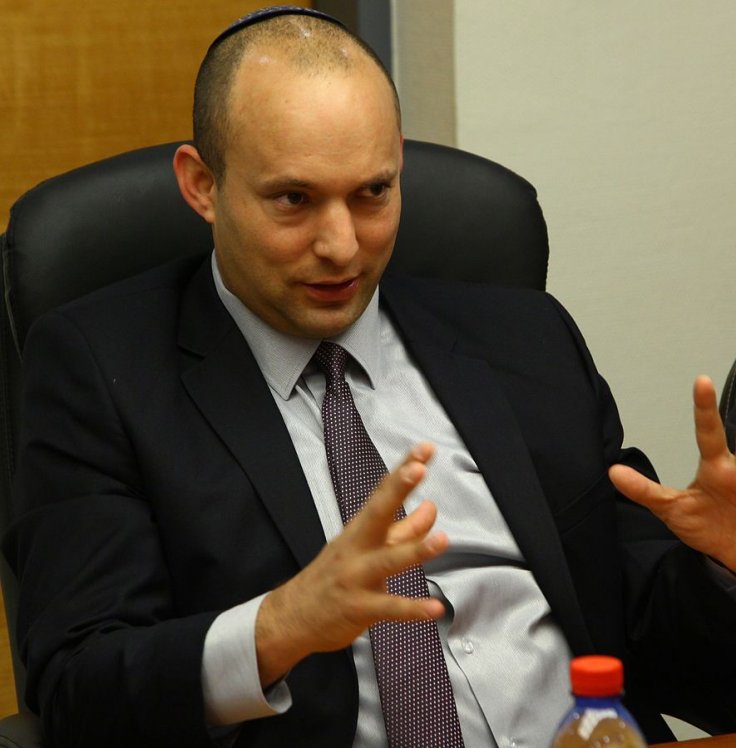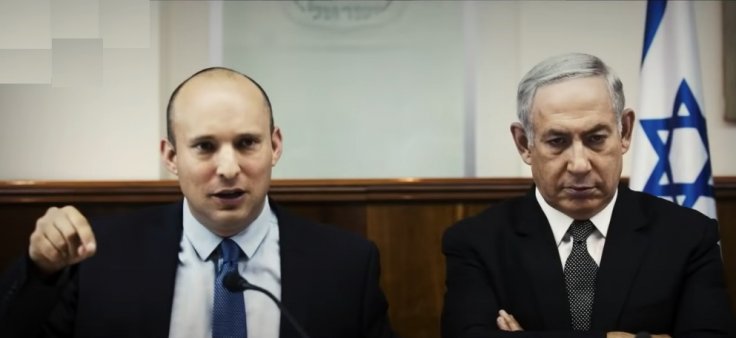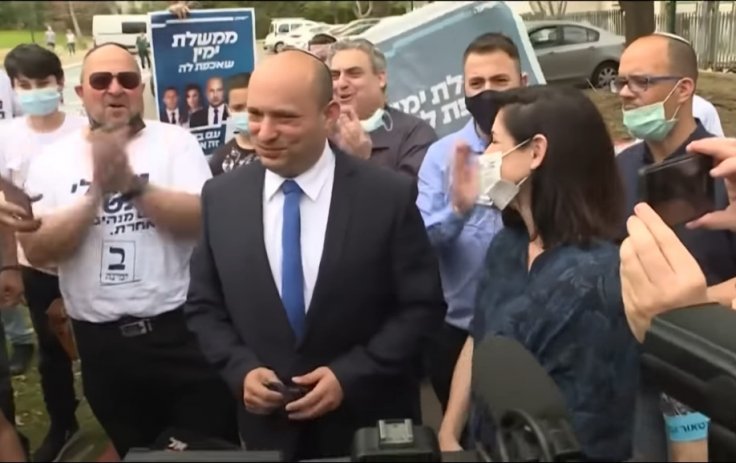Naftali Bennett was sworn in on Sunday as Israel's new prime minister, ending Benjamin Netanyahu's 12-year hold on power after the 120-member Knesset voted in favor of a coalition put together by centrist Yair Lapid, with a razor-thin majority. Once a special forces commando, Bennett, 49, is the leader of the right-wing Yamina party, which has called for Israel to annex parts of the occupied West Bank.
The disparate opposition parties have come together, mainly, to keep Netanyahu out of the office and avoid another election. This now shifts focus on Bennett as the international community will keep a close watch on the kippa-wearing religious Jew if will succeed in holding together his government.
Change of Power

Netanyahu, Israel's longest serving Prime Minister, who is on trial for fraud, fell short of gaining majority support following the general election in March. It was also the country's fourth general elections in just two years. On Sunday, his former aide Bennett took over as the country's new prime minister after securing a thin majority comprising eight parties from across Israel's political spectrum, including a small Arab party.
Bennett thus becomes Israel's first premier to openly lead a religious lifestyle, and the first to sport the kippa, a small skullcap worn by religious Jewish men. After being sworn in on Sunday, Bennett, a staunch supporter of Jewish settlements, said that he was joining forces with his political opponents to save the country from political disaster. Understandably, the effort of the collation is to keep Netanyahu out of power.
Bennett had earlier served as minister of defense as well as of education and the economy in various governments under the leadership of Netanyahu but now he wants to take the nation's control in his hands. Also, he is almost a generation younger than the 71-year-old Netanyahu.
That said, Bennett has a tough road ahead. After all, his ultranationalist Yamina party won just seven seats in the 120-member Knesset in the March elections.
New Leader, New Beginning

Son of American immigrants who speaks fluent English, Bennett is a religious Jew who made millions in the mostly secular hi-tech sector. He lives with his wife, Gilat, a dessert chef, and their four children in the affluent Tel Aviv suburb of Raanana. However, Bennett spent his childhood with his parents in Haifa.
The family then kept moving between North America and Israel. In between, he attended military service, law school and also had a successful career in the private sector. Throughout, he's curated a persona that's at once modern, religious and nationalist.
After serving in the elite Sayeret Matkal commando unit, Bennett went to law school at Hebrew University. In 1999, he co-founded Cyota, an anti-fraud software company that was sold in 2005 to US-based RSA Security for $145 million. At that time, Bennett was known more as a tech tycoon.
However, things changed a few years after that. Bennett has said the bitter experience of Israel's 2006 war against the Lebanese militant group Hezbollah drove him to politics. His views are out and open, in a video posted on his official YouTube page presents a colorfully animated account of the far-right politician's plan, with a lighthearted tone that belies its deeply serious message.
Bennett started as a strong supporter of Netanyahu when he first came to power. So much so that he even named his eldest son after Netanyahu's brother, Yoni, who was killed in an Israeli raid to free hijacked passengers at Uganda's Entebbe airport in 1976.
However, after some time, between 2006 and 2008, the relationship became rocky. Netanyahu was still the opposition leader at that time. In 2013, Bennett stormed into national politics, revamping a pro-settler party and serving as minister of defense as well as of education and the economy in various Netanyahu governments.
His Ideologies

A former leader of Yesha, the main settler movement in the West Bank, Bennett made annexation of parts of the territory that Israel captured in a 1967 war a major feature of his political platform. Some observers and newspapers in Israel have labeled him "ultra-nationalist" for his views. Bennett told The Times of Israel in February: "I'm more rightwing than Bibi (Netanyahu), but I don't use hate or polarization as a tool to promote myself politically."
Needless to say, Bennett is opposed to Palestinian independence and strongly supports Jewish settlements in the occupied West Bank and east Jerusalem, something the Palestinians and much of the international community see as a major obstacle to peace.
In fact, Bennett has recently called for the annexation of occupied West Bank. Observers of his political career have noted that this has, in fact, been his stance broadly ever since he became a prominent name in Israel's political scene.
Bennett has also taken a hard line towards Palestinian militants, and has endorsed the death penalty for them. Last month, Bennett accused Hamas of the "murder" of civilians in Gaza, who were killed in Israeli air-strikes in response to Hamas rocket fire from Gaza.
An advocate of liberalizing the economy, Bennett has also voiced support for cutting government red tape and taxes.








